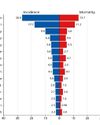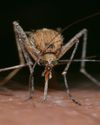In recent times, there has been a continuous debate on whether big data analytics is the next best thing in technology or just a technological bubble that will burst as the world explores it and begins to use it in real life and work.

However, the fact that big data analytics thrives on the diversity of its application areas proves that this technology is here to stay for long. Moreover, data has been an unused reserve for years. This technology allows the use of this reserve in the most augmented manner possible.
Agriculture has been a neglected field as far as technological use and applicability are concerned, which is more so in developing countries like India where funds for technological adoption are limited and technical expertise for using the available technologies is inadequate. The improving accessibility of low-cost IoT sensors and affordable solutions for smart agriculture has mitigated the challenges associated with adoption of IoT-based big data analytics in agriculture, to a large extent. It would not be wrong to state that IoT in agriculture is simply the coming together of information technology, telecommunications and sensor technologies. Some of the best examples of how IoT can be used in agriculture include development of smart irrigation facilities, facilitating check on soil vitals and performing a real time monitoring on crop health. In simple words, the vision is to empower farmers of different educational and cultural backgrounds and help them enhance their crop production with the help of state-of-the-art technologies. This movement can prove to be quite a revolution particularly for agro-based economies like India.
Benefits and Challenges
IoT has the capability to modernize agriculture and initiate exponential growth in the sector. It is all set to change the way cultivation and warehousing is done. Moreover, it is expected to reduce wastage and improve profit margins remarkably. In view of the fact that agro-based economies like India heavily depend on agriculture for growth, IoT-based initiatives can contribute to national growth in a massive way. The benefits of using IoT in agriculture include –
この記事は Scientific India の November - December 2018 版に掲載されています。
7 日間の Magzter GOLD 無料トライアルを開始して、何千もの厳選されたプレミアム ストーリー、9,000 以上の雑誌や新聞にアクセスしてください。
すでに購読者です ? サインイン
この記事は Scientific India の November - December 2018 版に掲載されています。
7 日間の Magzter GOLD 無料トライアルを開始して、何千もの厳選されたプレミアム ストーリー、9,000 以上の雑誌や新聞にアクセスしてください。
すでに購読者です? サインイン

Building world's 1st pyramid
In a preprint study published this summer, researchers proposed that ancient Egyptians built the world's first pyramid the 4,700-year-old Step Pyramid of Djoser, which sits on Egypt's Saqqara plateau using a \"modern hydraulic system\" powered by a long-gone branch of the Nile River.

Climate change arms the world, ovarian cancer pulls the trigger.It's time we disarm them both
Climate change, driven by human activities, leads to environmental changes such as rising temperatures, altered weather patterns, and increased pollution.

Climate Change Added 18 mph to Hurricane Wind Speeds over Past 5 Years
High ocean temperatures caused by global warming boosted maximum intensities for most storms between 2019 and 2023, as well as for every 2024 hurricane.

How Indian Vulture Decline Led to 500,000 Deaths in 5 Years
Once a common sight across India, vultures were abundant scavengers, often seen circling landfills in search of carcasses.

Understanding Monkeypox: Insights and Implications
Monkeypox, a viral zoonotic disease, has gained significant attention in recent years due to its re-emergence and sporadic outbreaks globally.

AI predicts that most of the world will see temperatures rise to 3°C much faster than previously expected
Three leading climate scientists have combined insights from 10 global climate models and, with the help of artificial intelligence (AI), conclude that regional warming thresholds are likely to be reached faster than previously estimated.

Infrared Radiation: A New Player In Mosquito Host-Seeking
The sound of mosquitoes is all around us when the sun sets and the air gets warm and sweltering.

Fish Oil May Benefit to Cure Alzheimer's, disorder: new findings
The benefits of fish and fish oil consumption are well-known in medical science as fish is considered a precious food resource that provides sufficient nutrition to humans.

A new class of antivirals could help prevent future pandemics
The arrival of Paxlovid in December 2021 marked another turning point in the COVID-19 pandemic an effective antiviral that has since successfully treated millions.

Turning carbon emissions into methane fuel
Chemists have developed a novel way to capture and convert carbon dioxide into methane, suggesting that future gas emissions could be converted into an alternative fuel using electricity from renewable sources. Carbon dioxide (CO2) is a greenhouse gas that accounts for a large part of Earth's warming climate, and is produced by power plants, factories and various forms of transportation.